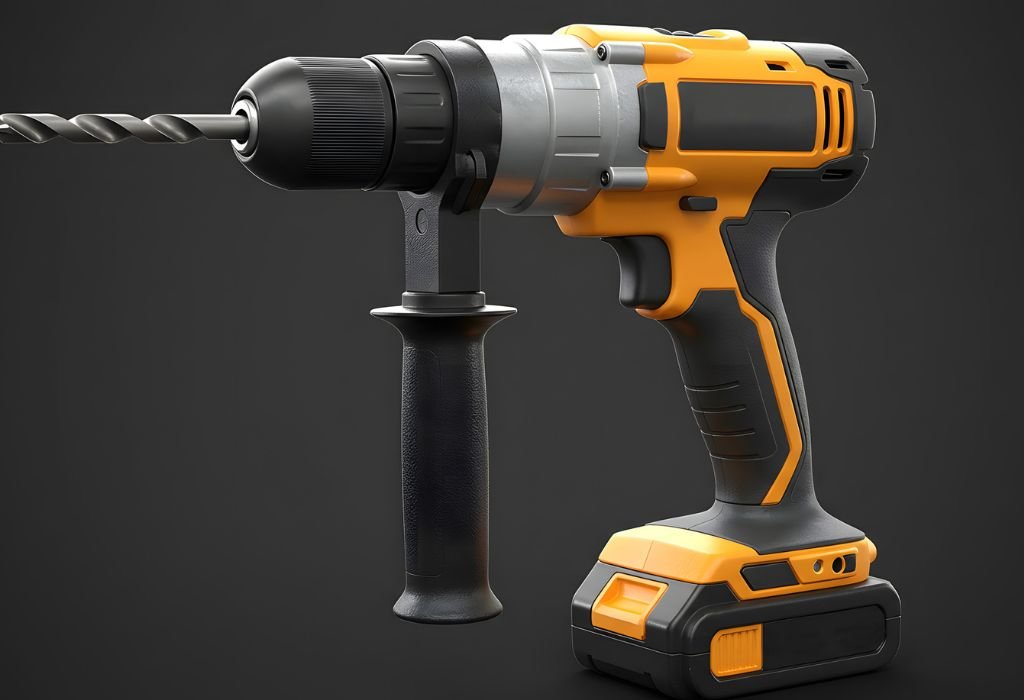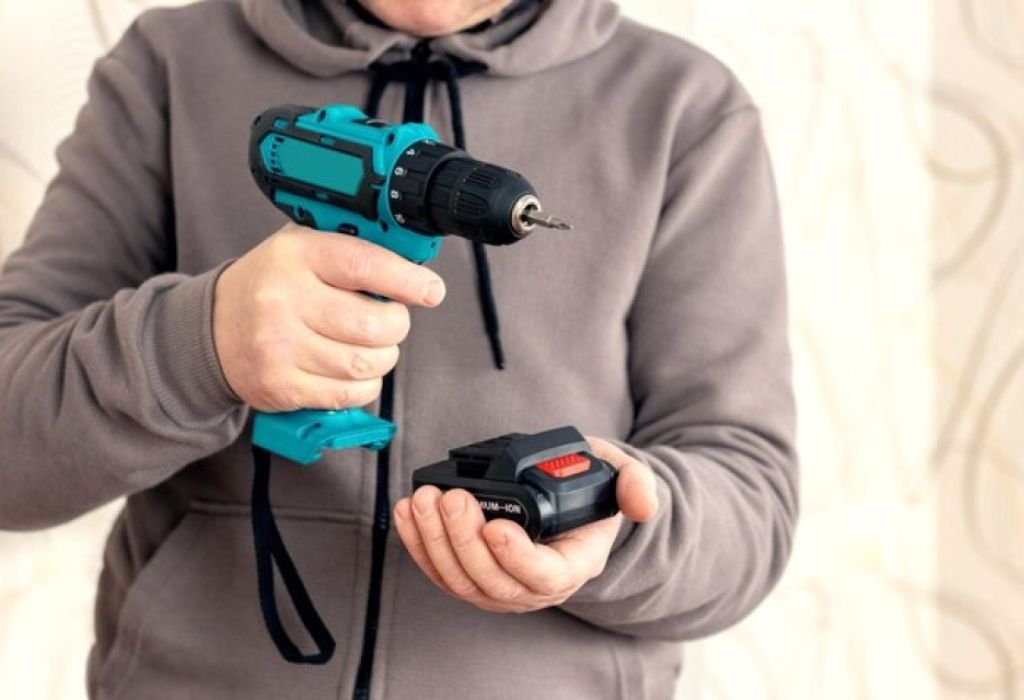A homeowner standing in the tool aisle often feels confused by the choices of 12V and 18V cordless drills, wondering which one will actually meet their needs.
The smaller 12V drill looks lightweight and affordable, while the larger 18V drill promises more power and durability, leaving the buyer uncertain.
Choosing the wrong drill can mean wasted money, unnecessary frustration, and a tool that fails to handle the job it was purchased for.
Many people assume higher voltage automatically means better performance, but the truth is more complex and depends heavily on the type of project.
According to the Home Improvement Research Institute, more than 40% of DIYers regret at least one tool purchase because it did not match their actual requirements.
Voltage is a crucial factor in performance, but it is only part of what makes a cordless drill effective and practical.
Understanding the differences between 12V and 18V drills ensures buyers select the tool that matches their most common projects.
This guide compares the two options in detail, covering power, weight, battery life, and project suitability to help you decide which drill is best in 2025.
What Does Voltage Mean in Cordless Drills?

Voltage refers to the amount of power the drill’s battery provides. A higher voltage battery generally translates into more torque and capacity to handle tough materials.
Lower voltage drills are lighter and smaller, which makes them easier to handle for light tasks and tight spaces. Higher voltage models are larger but deliver more power for heavy-duty applications.
It is important to note that voltage alone does not determine performance. Torque, speed, and motor design also affect drilling and driving capabilities.
When comparing 12V and 18V drills, consider voltage as part of the overall tool system rather than the only deciding factor.
What does voltage mean in drills?
It measures the battery’s power output.
Does higher voltage mean more power?
Yes, but other features also affect strength.
Does voltage affect weight?
Yes, higher volt drills are heavier.
Do volts impact runtime?
Yes, higher voltage often means longer runtime.
Is torque only about voltage?
No, torque is also influenced by clutch and motor.
Advantages of 12V Cordless Drills
A 12V drill is compact and lightweight, making it easy to carry, store, and use for everyday household tasks. Its small size allows it to fit into tight spaces where larger drills cannot reach.
It is best suited for light projects like assembling furniture, hanging shelves, or drilling into softwood. This makes it ideal for homeowners and beginners.
12V drills are also more affordable, giving budget-conscious buyers a reliable option without overspending. Their lighter weight reduces fatigue during longer tasks.
The main limitation is power, as these drills are not designed for heavy-duty work. They struggle with thick hardwood, masonry, and metal projects.
Is a 12V drill strong enough?
Yes, for basic household tasks.
Are 12V drills lightweight?
Yes, they are compact and easy to handle.
What projects fit a 12V drill?
Furniture, shelves, and softwood drilling.
Do 12V drills cost less?
Yes, they are more affordable.
Can pros use 12V drills?
Yes, but only for light-duty jobs.
Advantages of 18V Cordless Drills
An 18V cordless drill offers more power and torque, making it versatile enough for both homeowners and professionals. It handles a wider range of materials, including hardwood, metal, and masonry.
These drills provide longer runtime thanks to larger batteries. They can complete demanding projects without frequent recharging.
An 18V drill is heavier than a 12V model, but its added performance often justifies the extra weight. It is considered the all-purpose option for most users.
For serious DIYers and contractors, 18V drills strike the right balance between power, runtime, and durability. They are long-term investments for bigger projects.
Is 18V better than 12V?
Yes, it delivers more power and torque.
Can 18V drills handle masonry?
Yes, with the proper drill bits.
Are 18V drills heavy?
Yes, but still manageable.
Do 18V batteries last longer?
Yes, they have higher capacity.
Is 18V worth the extra cost?
Yes, for frequent or heavy-duty use.
12V vs 18V: Side-by-Side Comparison

The biggest difference between 12V and 18V drills is power. An 18V drill can drive larger screws and drill bigger holes than a 12V model.
Weight and size are also factors, with 12V drills being lighter and easier to maneuver. This makes them better for small projects and extended use.
Battery life is generally longer in 18V drills because of larger capacity. However, 12V drills charge faster and are easier to carry around.
Project suitability comes down to frequency and difficulty of tasks. 12V suits light household projects, while 18V suits versatile, heavy-duty needs.
Which drill lasts longer, 12V or 18V?
18V, because of larger batteries.
Which is easier to use?
12V, since it is smaller and lighter.
Which is better for beginners?
12V, for simple projects and affordability.
Which works better on metal?
18V, due to higher torque.
Which is more versatile overall?
18V, as it covers more project types.
When to Choose a 12V Cordless Drill
Choose a 12V drill if you only perform light household projects. It is excellent for hanging curtains, drilling into drywall, or assembling furniture.
Apartment dwellers and those with limited storage space benefit from a compact 12V model. It is portable and does not take up much room.
Seniors and people who prefer lightweight tools often choose 12V drills for comfort. They are easier to handle for longer periods.
Budget-conscious buyers also appreciate the lower cost of 12V drills. They provide good value for occasional use.
Who should buy a 12V drill?
Homeowners with light tasks.
Is 12V good for apartments?
Yes, it saves space and is easy to use.
Does 12V save money?
Yes, it is cheaper than higher volt models.
Is 12V drill good for women or seniors?
Yes, its light weight makes it practical.
Is 12V enough for hobby woodworking?
Yes, for small wood projects.
When to Choose an 18V Cordless Drill
Choose an 18V drill if you often take on medium to large projects. It is powerful enough for deck building, drilling into masonry, and long screw driving.
Contractors and frequent DIYers benefit most from 18V drills. They are durable and perform well under heavy workloads.
An 18V drill is also ideal if you plan to expand your tool collection. Many brands offer battery systems that work across multiple tools.
Although heavier, the performance of 18V drills makes them a smarter choice for demanding projects. They provide long-term value and flexibility.
Who should buy an 18V drill?
DIYers and professionals.
Is 18V good for contractors?
Yes, it handles heavy tasks well.
Does 18V handle tough jobs?
Yes, including hardwood and masonry.
Is 18V overkill for small tasks?
Yes, it is more than necessary.
Does 18V last longer than 12V?
Yes, it has better runtime.
Other Factors to Consider Beyond Voltage

Torque settings are just as important as voltage. Adjustable clutches prevent overdriving screws and damaging materials.
Speed settings determine how fast the drill spins. Higher speeds are useful for drilling, while lower speeds are better for screwdriving.
Ergonomics and comfort matter during long projects. A comfortable grip reduces fatigue and improves precision.
Battery systems also influence purchasing decisions. Many brands offer shared battery platforms across drills, saws, and other cordless tools.
Is torque more important than volts?
Yes, torque determines screw-driving ability.
Does drill speed matter?
Yes, speed settings improve versatility.
Is comfort important in drills?
Yes, ergonomics affect usability.
Do brands share batteries across tools?
Yes, many systems are interchangeable.
Is voltage the only factor to consider?
No, torque, speed, and ergonomics matter too.
Conclusion
The choice between a 12V and 18V cordless drill depends on the type of projects you tackle most often. Each option serves different needs effectively.
A 12V drill is lightweight, compact, and perfect for beginners and light household tasks. An 18V drill is powerful, versatile, and designed for frequent or heavy-duty work.
Both have unique advantages, but choosing the wrong one may result in wasted money or poor performance. The smartest choice is selecting the drill that covers 80% of your typical projects.
Final advice: pick a 12V drill if you need light, affordable convenience, and go with an 18V drill if you need versatile power for bigger jobs in 2025.

I’m John F. Nicholas, the founder, lead writer, and drill enthusiast behind 101drill.com. With years of hands-on experience in power tools and DIY projects, I created this platform to share practical knowledge, expert tips, and real-world insights to help others master the art of drilling.
